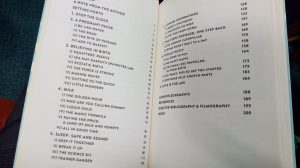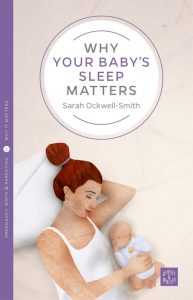Book Review: Trust Your Body Trust Your Baby, by Rosie Newman
 Rosie Newman’s book aims to inspire confidence and trust in a mother’s own instincts, through pregnancy and birth, feeding and mothering. It is a book for women who need help with the paradigm shift of becoming a new parent. One of the things that really comes across is the value of surrounding oneself with like-minded, positive people. Newman is well-read and draws extensively on the literature of attachment parenting and straightforward birth.
Rosie Newman’s book aims to inspire confidence and trust in a mother’s own instincts, through pregnancy and birth, feeding and mothering. It is a book for women who need help with the paradigm shift of becoming a new parent. One of the things that really comes across is the value of surrounding oneself with like-minded, positive people. Newman is well-read and draws extensively on the literature of attachment parenting and straightforward birth.
Trust Your Body Trust Your Baby is sensibly structured with a logical progression, starting with a practical chapter on preparation for the baby’s arrival. The birth chapter gives an interesting history of obstetrics, an explanation of the role of hormones, and a valiant attempt to convey the reality of labour.
The following chapters cover life after birth: establishing breastfeeding, sleep, attachment, and the emotional and psychological adjustment. All of this is extremely good stuff that I would recommend to new parents; it is well-referenced and although it comes from a firm base in attachment parenting, and includes a great deal of Newman’s own experience, it is written with empathy and compassion for both the mother and the baby.
The last chapter is on elimination communication, and might make some new parents wonder if this really is the book for them, or whether it is too far from the mainstream. My clients tend to think The Baby Whisperer is a “a bit of a hippie,” so I’m conscious of wanting books like this to be accessible. Of course there is a huge part of me that really doesn’t want to pull any punches, too.
I was writing this review at a very quiet breastfeeding drop-in. Two mothers came in and we were talking about the conflict between trusting your instincts as a mother, and coping with the pressures of modern life, lack of sleep, lack of support, and the weight of expectations that babies should behave in a certain way by a certain age (both babies were 3 months old and not behaving in a certain way at all). So I gave one of them the book; may it help her find her way.
[Disclosure: I received a free review copy of this book from the publishers. You can get your own copy here, and a 10% discount using the code SPROGCAST at the checkout].

